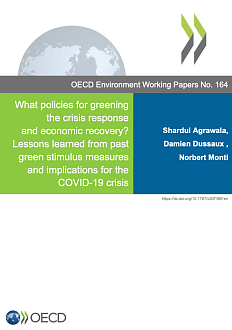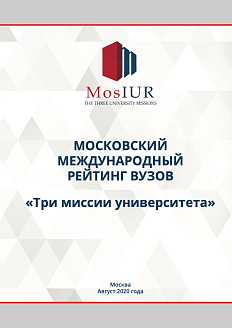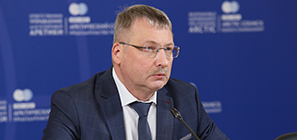A research by experts of the World Economic Forum provides an analysis of changes in the labor market. The report examines changes in work processes in the context of the pandemic and its implications for the future, as well as trends related to technology adoption, job dynamics, and specialized skills over the next five years.
The Roscongress Foundation presents the salient points of the publication accompanied by fragments of broadcasts of relevant panel discussions from the business programme of international events held by the Roscongress Foundation.
The pace of technology adoption is accelerating, which, together with the recession caused by COVID-19, has a double negative impact on workers and exacerbates inequality.
The report notes that the pace of technology adoption will not only remain unchanged, but may accelerate in some fields. The adoption of cloud computing, big data and e-commerce remains a priority for business leaders, which continues the trend of previous years.
Automation in tandem with the COVID-19 recession creates a «double pressure» scenario for workers. In addition to the current disruptions caused by the pandemic lockdown and economic downturn, the adoption of technology by companies will change tasks, jobs and skills by 2025. Also, 43% of surveyed enterprises indicated that they intend to reduce the number of employees due to the adoption of technology, 41% plan to expand the use of contractors to perform specialized work, and 34% conversely plan to expand the workforce due to the adoption of technology.
Inequality is also likely to be exacerbated by the double impact of technology and the pandemic recession. Jobs held by low-wage workers, women, and young workers suffered more during the first phase of the recession. If we compare the impact of the 2008 Global Financial Crisis on people with lower levels of education with the impact of the COVID-19 crisis, it can be said that the impact now is much greater and is likely to exacerbate existing inequalities.
The qualification gap is still wide, while the window of opportunity for workers to change and improve their skills is shrinking.
The skills gap remains wide, since the skills in demand in different jobs will change over the next five years. Key skills and skill sets that employers consider most important in the run-up to 2025 include such groups as critical thinking and analysis and problem-solving skills. They include self-management skills, active learning, stress resistance and flexibility. On average, companies estimate that about 40 percent of employees will need to enhance their skills within six months or less. In turn, 94% of business leaders expect employees to learn new skills on the job. This rate is up sharply in comparison to 65% in 2018.
The window of opportunity for workers to change and improve their skills has become narrower in an increasingly constrained labor market. This applies both to workers who will keep their positions and to those at risk of losing their jobs because of rising recession-related unemployment. Thus, the second group of workers will no longer be able to count on retraining on the job. For those employees who intend to keep their positions, the percentage of basic skills that will change over the next five years is 40%, with 50% of all employees in need of retraining.
The report notes that the public sector should provide greater support for retraining and skill development for workers at risk or who have been fired.
Companies should invest in the improvement of human and social capital indicators.
Companies should invest in the improvement of human and social capital by adopting environmental, social and corporate governance (ESG) principles in accordance with updated human capital accounting indicators. Most business leaders understand that retraining employees, especially in industrial sectors and in public-private cooperation, is cost-effective and pays significant medium- and long-term dividends not only for their company, but also for society as a whole. Companies hope to internally redeploy nearly 50% of the workers fired as a result of technological innovation and expansion, rather than utilizing layoffs and labor savings extensively through automation as the primary strategy. It is important to note that despite the current economic downturn, the vast majority of employers recognize the value of investing in human capital.
For more information, see the special sections of the Roscongress Foundation Information and Analytical System: StayHomeEconomy, and COVID-19 devoted to possible ways of stabilizing the economy during the pandemic; also Digitalization and Labor Market, which focus on information and communication and digital technologies and changes in the labor market.






